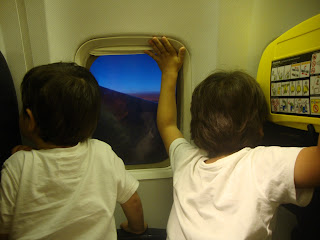Now that on the northern hemisphere the summer vacation period is getting close, it is time to talk about the value of spending time in the second homeland.
In our family we have created the tradition of visiting Hungary twice a year: during the winter and the summer vacation period. In the summer we usually spend a minimum of 3 and a maximum of 6 weeks on Hungarian language territory.
This, apart from spending time with the Hungarian family, is of vital importance for maintaining the second language knowledge active. I am saying this because in Spanish territory my kids tend to answer more times in Spanish than in Hungarian, however I almost only speak Hungarian to them. This way in Spain they create a passive knowledge that has to be activated from time to time.
Usually they only need a couple of days to completely switch to Hungarian with me and it is noticeable how they gain fluency and vocabulary day by day.
Coming back to Spain we keep this up for several months, but as time goes by, Spanish starts to dominate again in their answers till our next visit to Hungary.
Apart from the linguistic value, these visits have a very important cultural aspect as well. From eating Hungarian food at Hungarian eating hours, by making friendships with Hungarian kids, visiting historical places or museums, towns, even experiencing people behaving, reacting, connecting to each other in different ways - overall living the Hungarian way is an experience that is very important in the life and education of a bilingual/bicultural kid and family (it would be of almost the same importance in the life of any person to broaden views and the way to look at our whole world with its differences, to develop tolerance etc, but this is another topic).
Let me just put some examples of cultural differences that a child raised in Spain has to adapt to in Hungary: speak low, not to cut the word of another person, be more quiet in public spaces, not to sit or lie down in the street, have lunch at 12:00-13:00 (instead of 14:00-15:00), have dinner at 18:00-19:00 (instead of 20:00-22:00) and go to bed at 20:00-21:00 (instead of 22:00-24:00!!)...
This summer will be the first when my two boys (aged 5 and 7) will spend time with their Hungarian family without us, the parents being there. I am curious to see the effects on their behaviour and linguistic development.
How often do you make trips to your second country? Do you send your kids there alone, too? How do you see their development, their change of views, behaviours, attitude to things?
-----------------------------------------------------------------------------------------------------------
Ahora que el periodo de las vacaciones de verano se acerca, llega el momento también de hablar pasar temporadas en el segundo hogar (país).
En nuestra familia hemos creado la tradición de visitar Hungría dos veces al año: durante las vacaciones de invierno y verano. Durante el verano normalmente pasamos un mínimo de 3 y un máximo de 6 semanas en territorio húngaro.
Esto, aparte de su importancia por el hecho de pasar tiempo con la familia húngara, también tiene una importancia vital para mantener el segundo idioma activo. Digo esto porque en España mis niños tienen la tendencia de responderme mas veces en español que en húngaro, a pesar de que yo prácticamente siempre les hablo en húngaro. De esta manera, en España están creando un conocimiento pasivo que tiene que ser activado de vez en cuando. Normalmente solo necesitan un par de días para cambiar totalmente a húngaro conmigo y es evidente como van ganando fluidez y vocabulario cada día.
Al volver a España mantenemos este nivel alcanzado durante algunos meses, pero según pasa el tiempo, el español empieza a dominar cada vez más hasta la siguiente visita a Hungría.
Aparte de su importancia lingüística, estas visitas tienen un aspecto cultural muy importante. Desde comer comida húngara en horarios húngaros, pasando por hacer amigos húngaros, visitar sitios históricos, museos, ciudades, hasta interactuar con gente portándose, reaccionando y comunicando de maneras diferentes - en definitiva, "vivir a la húngara" es una experiencia muy importante en la vida de un niño y de una familia bilingüe/bicultural (puede tener casi la misma importancia en la vida de cualquiera persona para ampliar horizontes y la manera de ver y entender el mundo total con sus diferencias, para desarrollar la tolerancia etc, pero eso es ya es otro tema mas amplio).
Aquí hay unos ejemplos sencillos de las diferencias culturales, a las cuales un niño que crece en España tiene que adaptarse cuando paso algún tiempo en Hungría: hablar bajo, no interrumpir cuando otra persona habla, no hacer el salvaje en sitios públicos, no sentarse o tumbarse en la calle, comer a las 12:00-13:00 (en lugar de14:00-15:00), cenar a las 18:00-19:00 (en lugar de 20:00-22:00) y ir a la cama a las 20:00-21:00 (en lugar de 22:00-24:00!!)...
Este será el primer verano que mis dos hijos (de 5 y 7 años) van a pasar tiempo con su familia húngara sin nosotros, padres. Tengo curiosidad de ver que efectos va a tener en sus comportamientos y desarrollo lingüístico.
¿Con que frecuencia hacéis viajes a vuestra segunda tierra? ¿También mandas tus hijos allí solos?¿Qué cambios observas en su desarrollo, pensamiento, comportamiento, actitud?
